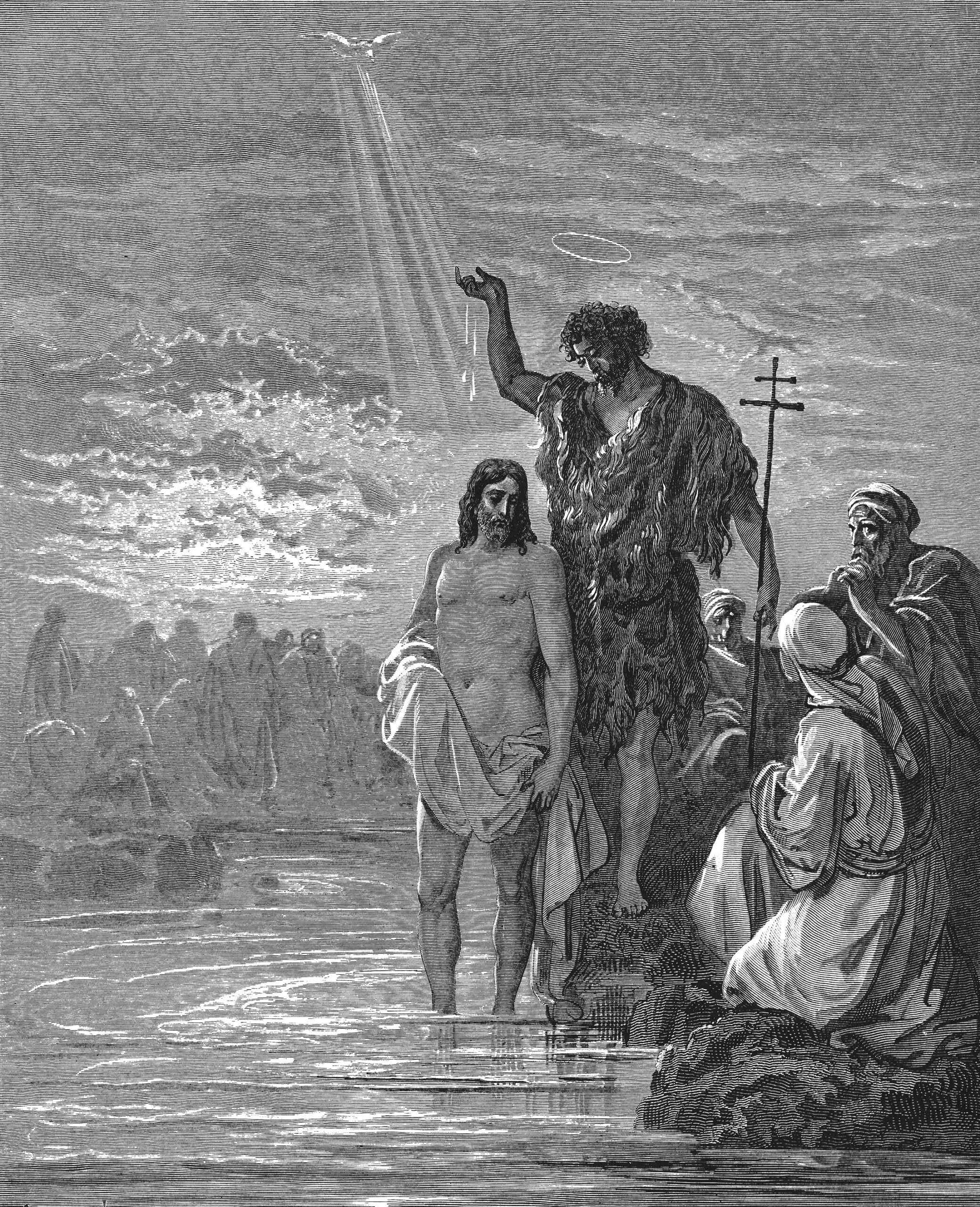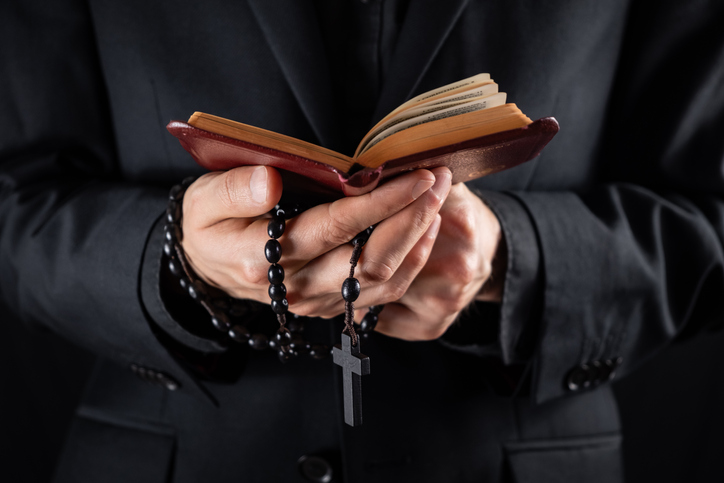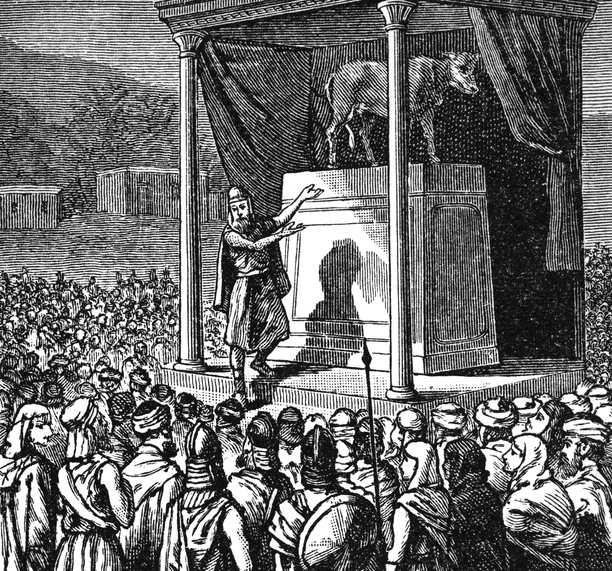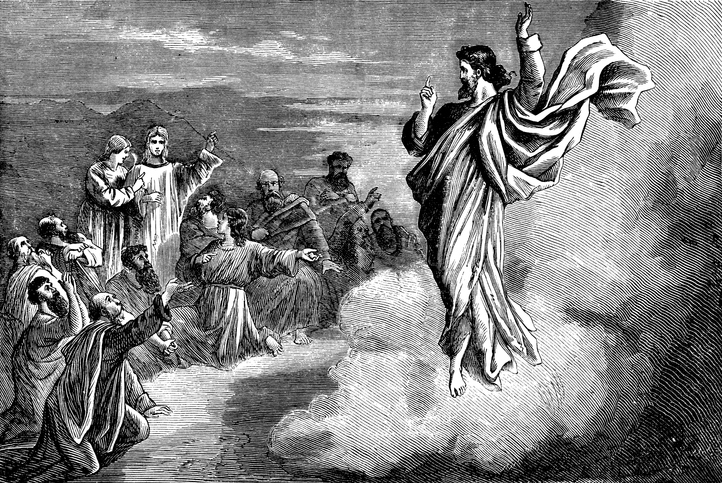“It is a fearful thing to fall into the hands of the living God” (Heb 10:31).
We might think something like this when we hear today’s Gospel passage, which promises condemnation to those who deny Christ and blaspheme the Holy Spirit. We are told that nothing is impossible for God, and that the Son of Man came that all might have life, but we are also told that the one who blasphemes against the Holy Spirit will not be forgiven. What if we stumble into blasphemy against the Holy Spirit? What if we are not courageous in our public conversations, and so do not defend Christ when necessary?
Taken out of context, these verses are terrifying. Indeed, even in context, they still call to mind our verse from Hebrews. But given the surrounding readings, we have a broader perspective, allowing us to shed our anxiety and embrace the grace of Christ. We ought to be on guard against infidelity, cowardice, and blasphemy, but we ought not be anxious about them. Concern is warranted, even called for, but anxiety paralyzes. We can see the merit of this approach within the context, but also within the warnings themselves.
Denying Christ before others is self-explanatory. “Blasphemy against the Holy Spirit,” on the other hand, is sometimes misunderstood. It is considered by a great many saints to mean final unrepentance, a hardness of heart that denies responsibility for sin. These sins are grave, but they are also uncommon. You would be hard-pressed to commit the act of renouncing Christ or blasphemy against the Spirit without a firm intention to do so. Still, we are told to be on our guard.
In the same breath that he warns against these things, Jesus reminds his disciples of the Holy Spirit’s assistance: “When they take you before synagogues and before rulers and authorities, do not worry about how or what your defense will be or about what you are to say. For the Holy Spirit will teach you at that moment what you should say” (Lk 12:11–12). This shows us a deeper truth than our fears offer: for the faithful follower of Christ, there really is nothing to worry about.
To be sure, there are things that should give us pause. It is still a fearful thing to fall into the hands of the living God, and sin is no joke. However, a view which narrows in on these elements of the Christian life fails to recognize the riches of God’s grace. Saint Paul speaks eloquently of this grace in our first reading, mentioning “the hope” of God’s call, “the riches of glory” that belong to the saints, and “the greatness of his power” for the faithful (Eph 1:18–19). The Psalmist picks up the thread, proclaiming God’s great glory throughout the entire earth.
With God’s grace so prominent for the Christian, anxiety becomes less significant. Sin and temptation remain, but their power pales in comparison to the victory of Christ. For the well-formed Christian, the assistance of the Holy Spirit is an assurance of peace: “the Holy Spirit will teach you at that moment what you should say” (Lk 12:12). This is the key: though we aim to avoid the judgment of God, we can rest assured in the knowledge that God is with those who believe in him. A vast array of aid is available to us, if only we look up to heaven and ask for it.
That being said, this takes some discipline. It is not enough to simply have good will and believe in Jesus. Saint Paul does not stop praying for the Ephesians, thinking that their faith and love are sufficient for a perfect life. Instead, he prays for a deepening of knowledge, that they may act even more in accordance with God’s call. The spiritual life, rejuvenating as it is, requires hard work and preparation, so that we can be well-equipped in time of trial. The disciple of Christ can rely on the Holy Spirit’s assistance when brought before rulers and authorities because he knows that he is in a state of grace, open to the promptings of the Spirit.
With this in mind, we can be assured that there is peace and joy for those who follow the Lord with heart, soul, mind, and strength. Though there are sins and enticements that we must avoid at all costs, this effort is made simple by the abundant grace of Christ. We need only to avail ourselves of the fonts of those graces: prayer, the sacraments, trust in the Lord, and docility to the Holy Spirit.
 David Dashiell is the Associate Director of Liturgy for a group of parishes in Pittsburgh, Pennsylvania. When he is not spending time with his wife and infant daughter, he is writing on philosophy and theology for various online publications. You can find some of these in Crisis Magazine and the Imaginative Conservative, and you can contact him at ddashiellwork@gmail.com.
David Dashiell is the Associate Director of Liturgy for a group of parishes in Pittsburgh, Pennsylvania. When he is not spending time with his wife and infant daughter, he is writing on philosophy and theology for various online publications. You can find some of these in Crisis Magazine and the Imaginative Conservative, and you can contact him at ddashiellwork@gmail.com.







